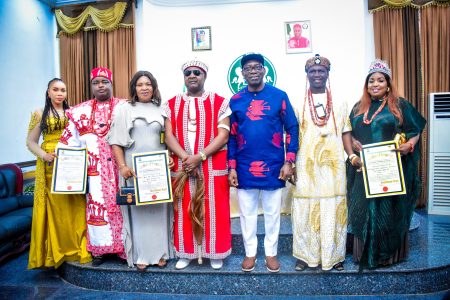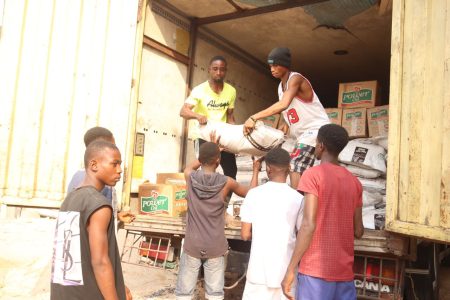The U.S. says it is set to invest $600 million in private investments and infrastructure in Africa as a partnership towards deepening the global alliance.
David Greene, Chargé d’Affaires of the U.S. Embassy in Nigeria, disclosed this to journalists on Sunday in Abuja.
The envoy spoke while fielding questions given the growing moves by countries to form global alliances towards introducing new economic trade separate from the Western systems.
According to him, every country has the right to choose who it has relations with and what other organisations and multilateral groups it associates with.
“We believe that any multilateral gathering should be advancing the articulated principle of the UN chatter about territorial integrity and respect for sovereignty.
“Any multilateral group should take seriously the obligation to try and advance the principles and the articulated universal declaration of human rights to improve the functioning of individual state or lead to greater success of any country, any multilateral group, in terms of meeting the aspirations of its people.
“So, the U.S. truly believes in multilateralism, and whether Nigeria does not join the BRICS is a decision for Nigeria,” he said.
He said that U.S. President Joe Biden had reiterated his administration’s resolve to deepen its alliance with Africa at several public functions.
He explained that the U.S. would do more to advance U.S.-Africa ties, U.S.-Nigeria ties and global ties.
Mr Greene described the global alliance as “the ability of countries that want to partner to advance their development and success in line with their aspirations.
“We believe that it is true that alliances and coalitions are international relations that can help move the world forward in a better direction about our engagement in Africa.
“The BRICS are not a factor in that regard; we have established strong strategic people-to-people ties across the continent.
“We rallied the G-20 to include the African Union, the most recent G-20 meeting in India; we are working with partners to unlock the $200 billion in World Bank and IMF resources to address the kind of challenges that we all face.
“We are working to unlock the $600 million, hopefully in private investments and infrastructure in the next couple of years, as part of our global partnership for infrastructure global investment,” he said.
(NAN)


